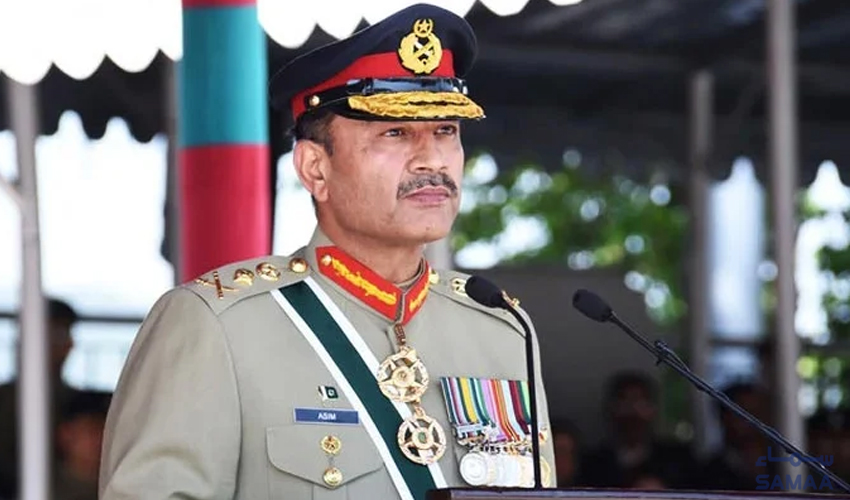COAS stresses commitment to zero tolerance for any form of instability
Gen Munir says complete independence not possible without economic stability
Gen Munir says complete independence not possible without economic stability
Forecasts flooding risk in Harnai, Zhob, Barkhan, and Naseerabad
ECP also issues victory notification of PML-N’s Ahmed Iqbal
Cashless Hajj, Umrah experience introduced, significantly enhancing convenience by reducing fees, taxes
Overall inflation rate has reached its lowest level in 31 weeks
A religious seminary student was electrocuted to death in the Bhara Kaho
CAA allocates space for two dedicated immigration counters for Saudi immigration at Karachi airport
'PTI founder is having fan following', says Irfan Siddiqui
Home Dept urges project authorities to either purchase or rent vehicles to comply with security needs
Gen Munir says complete independence not possible without economic stability
The cabinet also approved special court in Makran division for anti-narcotics cases
New rain spell to fall in Lahore with intermittent rains from tomorrow till April 31
Gold price fluctuation are directly linked to changes in value of US Dollar
Wasa, Traffic Police are in the field to facilitate citizens safely to their destinations
Read latest party position in the National Assembly
Overall inflation rate has reached its lowest level in 31 weeks
Atletico goalkeeper Jan Oblak acknowledges challenges his team faces
‘Begum Jaan’ actress amasses over 10m followers
Cashless Hajj, Umrah experience introduced, significantly enhancing convenience by reducing fees, taxes
Following the widespread arrests of anti-war protesters, a pro-Palestinian group filed a civil rights complaint against Columbia University
'Establishment of nutrition force topmost priority of Punjab CM', says minister
Owner attributes her unusual colouration to biliverdin, benign bile pigment encountered in womb
Implementing reporting standards 18 has its challenges, but offers long-term benefits

